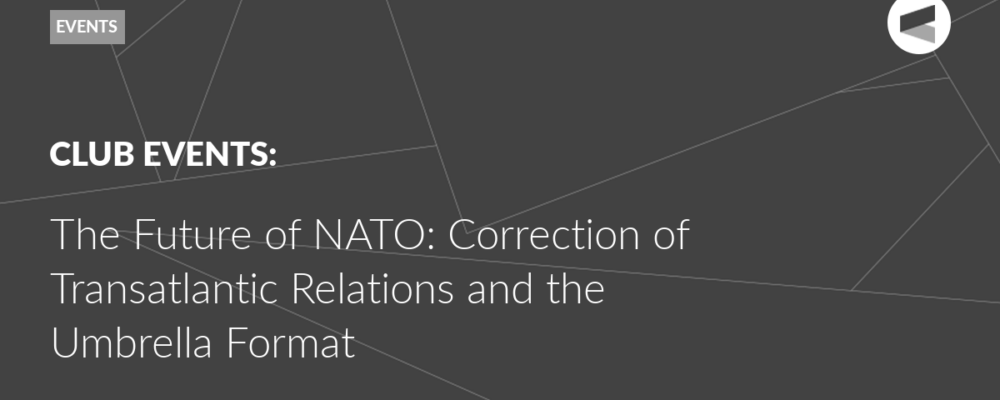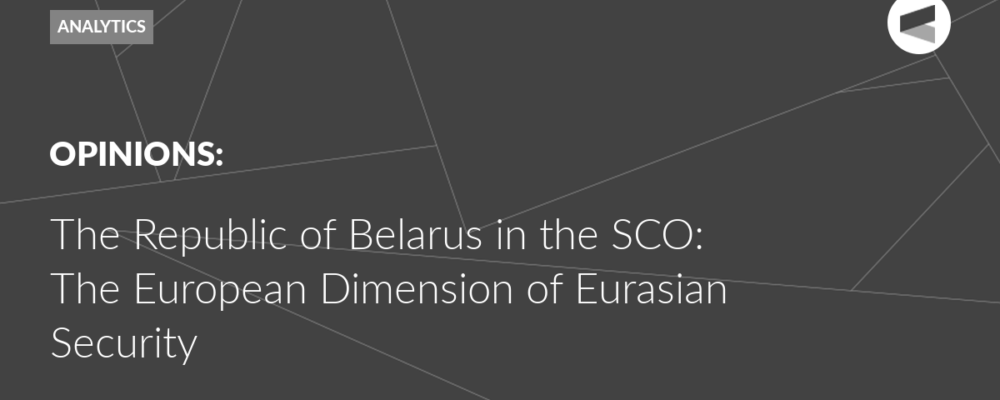As a discussion club widely known for focusing on global politics and world affairs, it is appropriate and timely under the circumstances that we start brainstorming and debating the possible structure of a new world order. This is because, on the one hand, the relatively stable balance of power achieved after the Second World War is gon, writes Nelson Wong, President of the Shanghai Centre for RimPac Strategic and International Studies, for the 21st Annual meeting of the Valdai Discussion Club.
In fact, apart from the short period since the end of the Cold War, the world has always been multipolar, even since ancient times, except that regional powers waxed and waned throughout a relatively separated world. However, with the advancement of our technological breakthroughs and our national economies becoming interwoven with one another, what was the norm fifty years ago is like ancient history now. Therefore, relying on old schools of thought and theories on international relations seems no longer sufficient to provide answers or resolve the mess and confusion we have today.
Some may argue that throughout human history it is always the winner who takes all, and that the winner does not get judged or never cares about being judged. That may have been true in the past, when the world was not as interconnected and interdependent as we are today in our economic activities, and when modern communication means were not available. That is why, when those who advocate and believe in offensive realism try hard to defend and rationalise the objective of the US to contain China’s development, the White House administrations still find it impractical to completely cut its ties with China.
Another example can be found in the approach of the Collective West towards Russia. In addition to sending weapons and all kinds of support to the Ukrainian government to prolong the conflict in Ukraine, the West has also been bombarding Russia with more than ten thousand sanctions to try and weaken its economy. However, Russia is still surviving and there is absolutely no chance for Russia to admit failure in its “special military operation” in Ukraine. There are even rumours that Europe is still buying energy resources from Russia, albeit through indirect channels.
The point I am trying to make here is that actions speak louder than words and that we need only look at what a country does to know what it actually is after. In the meantime, our actions reflect what is in our minds because perception is reality. So regardless of what US politicians may say, the naked truth is that they are forever on the hunt to identify competitors or enemies and will try to crush them in whatever way possible, because they are convinced that they must contain the development of the up and coming, sanction those who do not bend to their demands, and will even launch a war against those they perceive to have become a threat, not necessarily to their existence, but to their sheer ambition and greed to stay dominant.
But the fact of the matter is that the days of the world having one superpower are gone, not because people are rebellious by nature, but because the United States, which became the only superpower after the Cold War, has gotten too carried away with its uncontrolled greed, its ruthless manipulation of existing global institutions to its own favour, and its total disrespect of the rights of others, to the extent that it is now even weaponising its currency, resulting in the World Majority having no choice but to stand up and voice their disagreement.
It is therefore time that we get to the core of the matter and stop beating around the bush. My perhaps immature observation is that the current division of the world, or the much talked about rivalry between China and the US, is in essence not a conflict of ideologies, nor is it the competition between a democracy and an autocracy as has been proclaimed by many in the West. The difference is that the US wants to stay dominant and fears that China might replace its leading position, while China, as a big country that is no longer poor, only feels it improper not to assume due responsibilities for ensuring a fair structure and basis of global governance, but has never thought about becoming the leader of the world.
In fact, the rise of China from being one of the poorest countries on Earth some forty years ago to being its second largest economy today is a classic example of what a country can accomplish in its economic and social development with the benefit of good domestic governance based on meritocracy and proactive but flexible foreign policies, as well as through the hardworking nature of its people. China’s achievements have not been brought about through plunder, by identifying enemies and picking fights with others, or by bullying and harming those that are weaker.
Another example of China’s approach being different can be found in the country’s Belt and Road Initiative, which seeks to help enhance connectivity in a worldwide context by helping other countries build and improve their infrastructure with the modern technology and the financial capacity China has accumulated over the past few decades. What is true is that China’s remarkable achievements with this initiative within a matter of ten years have been made possible only through fair and friendly negotiations; not by firing a bullet or throwing a bomb, not by sabotaging a government, and certainly not by isolating or sanctioning a country to force it to bend down.
With our rich culture and long history, the collective national character of we Chinese allows us to believe in restraint being a virtue while seeing confrontation-seeking as something to be frowned upon. We differ from those who are still obsessed by the notion of “might is right”, prefer to handle international relations “in a position of strength”. Instead of seeing others as either guests at the table or a dish on the table to be eaten up, we Chinese believe that “a real gentleman seeks to get along with others while he does not necessarily have to agree with them” (Confucius).
This is why, despite the repeated and increasing pressures from the US and its Western allies, China continues to advance its partnership with Russia to an all-time high because China believes it is in our countries’ best interest to do so. It is true that China has not condemned Russia for its “special military operation” in Ukraine, because China recognises that there is a complex historical background and the root causes behind the conflict in Ukraine. But unlike the US and its allies, China has not supplied weapons to Russia, because China understands that that will only escalate the conflict. As a result, China has actively engaged itself, and by partnering with others, in an effort to call for an earliest possible solution through peace talks by all stakeholders.
What many people including some in Russia have failed to realise is that the reason for China insisting on interpreting the Sino-Russo relations as being “non-alignment, non-confrontational, and not against a third party” is because China respects Russia as being one of the most important countries on Earth, which will be instrumental in the building of a new world structure in the polycentric world of tomorrow. As a natural progression, it is my humble opinion that if Europe desires to stay relevant in the future world order, which I believe it should, their leaders must recognise that the days of Western dominance, let alone colonialism, are gone forever and that they have to respect others as equals in order to be respected.
The emergence of BRICS is therefore more than a sign of the Global South’s discontent and resentment towards the old structure, which is already in shambles. It shows the reality of our world that is now in transition. Declared to be a non-Western organisation but not against the West, members of BRICS come from different continents with different political and social systems, different religions and cultural and historical backgrounds. This, by itself, is a manifestation of the fact that the World Majority favours multilateralism. Those obsolete thoughts and theories aimed at instigating or rationalising aggressive foreign polices to protect the hegemony of the rich and powerful are thereby out of date.
Although China’s achievement might provide some food for thought to others, what is important to note is that China has never claimed that its own way of development and the path it has chosen are of universal relevance, nor is China ever interested in exporting its beliefs and likes, because we understand and appreciate the diversity of the world and that people are different. That said, the anarchy of the world with the absence of an almighty world government dictates that in order to ensure a fair and peaceful environment for us all to survive and thrive in, all nations need to submit themselves, to operate within the framework of certain accepted rules and values that must first and foremost respect the equal rights of all.
I would take this opportunity to conclude by saying that it is fair and just for people around the world to all want to make their country great, or great again. It is also not wrong for every nation to learn from the achievements of others and then to choose their own path for development that is most suitable to them, taking into account their cultural and historical backgrounds and their unique collective national characters. For any discussion to be meaningful and productive, I would contend that the following should form the basis, or at least the spirit, of a new world order that we must work towards:
A democratic new world order should be one where all nations, big and small, are equal in terms of political standing and all religions must be respected; where no nation is superior to others, nor is it welcomed to lecture others on what to do and how to run their countries; where every country’s sovereignty and territorial integrity must be respected at all times; where the act or any attempt to interfere in other countries’ domestic affairs must be prohibited; where all disputes between and among nations must be solved diplomatically through peaceful means and good willed mediation by third parties should be encouraged; and where the act of war, or any provocative actions to stir up fire even by using others as a proxy, must be condemned by the international community.
Crafting a structure in an unstructured world is difficult, but not mission impossible. For those who might be stuck in a strategic dilemma or find it difficult to leave behind their hatred or despair, I would hereby share another old Chinese saying that goes like this: take a step back and there will be a bigger world in front of you.
The Valdai Discussion Club was established in 2004. It is named after Lake Valdai, which is located close to Veliky Novgorod, where the Club’s first meeting took place.
Please visit the firm link to site






